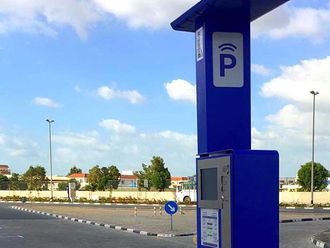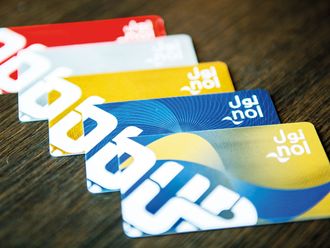
Dubai: Who doesn’t like a deal and a bunch of free stuff? However, if it looks too good to be true, perhaps you need approach it with caution. Authorities in the UAE have continuously been raising awareness on the different types of scams that users may face online, and educating them on how they can stay safe. Here are a few fake messages that you should beware of:
1. Fake food scams
Banks in the UAE have been sharing informational posts with customers, warning people of how scammers operate when it comes to fake food websites.
Scammers post fake food offers on websites or social media platforms and ask you to click on links to avail the offer. Once you click, you are asked to provide your personal and banking information, after which a one-time password (OTP) is sent – with a different amount and another merchant name. Providing these details gives the scammers access to your data, which can then be used for fraudulent transactions.
On August 13, Abu Dhabi Police too warned people of such fake websites, stating that it had noticed fraudsters and swindlers use certain tactics through which they lure victims to defraud them.
While warning people of food related scams, the police department said in a statement: “Abu Dhabi Police have warned against fake websites that pose as renowned restaurants and shops, offering customers special deals to lure them to pay fees. Once payment is made via credit card, these fraudulent sites may potentially drain the card's balance."
2. Fake shopping sites
Abu Dhabi Judicial Department (ADJD) has also been regularly sharing posts on its social media accounts, highlighting some of the most common online scams that people may come across. When it comes to fake shopping sites, scammers use social media to advertise their fake websites, where the goods are offered at very low prices, according to ADJD. “The payment is made by bank transfers or payment cards. After making a number of sales, these stores disappear completely,” the department said.
3. Fake prize money
Another scam that ADJD highlighted was receiving messages of winning prize money, where you are required to click on a link to claim the prize. It is extremely important to not click on such links.
Here are a few other types of scams that ADJD warned online users about:
4. Impersonating an official employee
5. Fake shipping company messages
6. Fake marriage proposals
7. Real estate fraud
8. Fake housemaid agencies
9. Pets for sale or adoption
Abu Dhabi Police also called on the public not to deal with fake online advertisements that offer pets for sale or adoption in exchange for bearing the costs of shipping and insurance from outside the country. “These are advertised through the internet, social networking sites, and some buying and selling applications on smart phones, and the victims are asked to send money to bank accounts opened for the purpose of theft and fraud, or are requested to transfer money through local and international exchange companies,” the police said.
10. Fake job offers
Abu Dhabi Police also warned people to not fall for job listings that are fake, as fraudsters take advantage of people by holding events and activities to defraud them, while mimicking the websites and social media accounts of real companies. They then ask victims to pay certain sums of money as fees for these fake jobs.
“The applicants eventually discover that they have fallen victim to fraud,” Abu Dhabi Police said in the post.
How do I know the message or website is fraudulent?
Here are some of the tips shared by authorities that you can use to stay safe online:
1. Check the email sent and check the links before clicking on them. A link should start with “https://www”
2. Be careful not to provide personal information and make sure you know who you are dealing with.
3. Be careful when you do online shopping. Check the reliability and ownership of the store.
4. Do not rush! Do not give anybody your card details – card number, expiry date, CCV code or OTP verification code.
5. Be careful not to make any bank transfers to unknown accounts and do not deal with any electronic payment links sent on Whatsapp or social media platforms.
6. Verify irregular discounts and offers, especially in unknown stores.
7. Report crimes immediately and contact the concerned authorities.
8. Be cautious of unsolicited offers that seem too good to be true or come from unfamiliar or suspicious email addresses, social media accounts or websites.
9. To ensure legitimacy, refer to official websites or authorised channels of renowned food establishments or delivery services for any promotions, discounts or special offers.
10. Avoid sharing personal information, bank details or any sensitive data unless you can verify the legitimacy of the offer.
11. When you receive an OTP, don’t forget to verify the purchase amount and merchant name in the SMS text.
How to report a scam
You can report cybercrimes online through the following channels:
• The eCrime website – ecrime.ae
• Aman service by Abu Dhabi Police – Call 800 2626
You can also report cybercrimes to the nearest police station in your area, or call 999 for help.








